Fellow conspirators,
There are few “reads” in modern history more trite than the “end of innocence” narrative that surrounds the assassination of John F Kennedy in November, 1963. The death of Camelot; the bursting floodgate heralding a decade of American unrest and a half-century of swelling ambient paranoia. Hey, we ain’t gonna deny it’s compelling. And it’s precisely this grand reading that undergirds Oliver Stone’s epic 1991 dramatic treatment of the assassination’s aftermath.
If it’s a surprisingly naïve reading for a filmmaker who had, by that point, established himself as a fairly robust critic of his country’s recent evils, that’s basically because JFK proceeds from the perspective of its protagonist, Jim Garrison—a respectable attorney whose journey through the story is one of credulous patriotism souring into a painful enlightenment. Believe his conclusions or not, the core of his wisdom is undeniable: the government can lie, and it will lie; it can kill, and it will kill. This journey is presented with clarity but not irony: we follow Garrison’s journey as it goes along, hearing the case as it’s put together.
But, as we discuss on mic, there’s an extent to which Stone—a classic Boomer, born in the mid-40s and evidently influenced by the perspective of his respectable, patrician American father—fails to escape his own credulity towards the myth of his country’s essential greatness. His screenplay, co-written with Kennedy expert Zachary Sklar, hinges on the dual notions that the US citizenry can fight for the truth and set an example, and the Government can aspire to open, democratic goodness. These truths the writers apparently hold to be self-evident. The screenplay uses strong terms indeed in its accusation of the CIA, the Secret Service and even Lyndon Johnson—but its plea is ultimately for a return to innocence: implying that there was an innocence, an essential morality, to begin with.
Because of course, what does this grand exercise in paranoia build up to? A shot of the upright American family walking hand-in-hand towards the light. In real life, Garrison and his wife divorced not long after his epic court case against Clay Shaw. (She was not on board with his project.) Stone and Sklar pointedly ignore this, as their closing text—entreating the audience to continue the battle for truth and justice on behalf of “the young”—materialises over an image that, in its courthouse setting, deliberately combines the institutions of family and government.
It’s interesting that much of the film treats Garrison’s investigation with a paranoiac aesthetic which privileges not only the information involved, but its proliferation. This is a carefully chaotic movie, one where every other sequence—masterfully—feels like it’s going to collapse, as if the film reel itself could snap through sheer exertion. But its frequent swerves into a kind of postmodernist inquiry always come back to the reassurance of generic structures—for instance, the investigative mode, resolving in a grand summation—before that ultimate closure on the reunited family.
The big word invoked within the film, the one that describes the essence of the situation, is “fascism”. JFK pleads that its audience notices, investigates and roots out the fascism of the American deep state, on behalf of children, family and nation. The problem is: the appeal made by fascism is often precisely in terms of protecting children, family and nation. So again, we return to contradiction—which is, itself, crucial to the embedded paranoia.
At its heart, this is a biopic not of its title character or of its protagonist, Jim Garrison, but of a situation: a country confronted first with a moment of major horror played out in unprecedented real time (the USA’s last presidential assassination had been in 1901—spiritually, a millennium removed in terms of mass communication media); subsequently, the existential confusion conjured by the Garrison investigation, which commanded real mass attention for a conspiracy theory that directly implicated elements of the country’s government in some particularly grim shenanigans at home. So, if the film’s conclusions grow somewhat confused—being as it is a radical leftwing screed ultimately in favour of the American family—that very confusion is, at the very least, appropriate to the situation.
Fundamentally, JFK is a film named after an absent figure—a narrative lacking its centre. And that narrative, in turn, is about a man—one who thinks of himself as ordinary, homely, traditional—searching for a centre; an answer; an explanation, and a retribution. And the film ultimately finds its creator searching for the same. No such answer or centre is forthcoming. Perhaps that’s the real meaning of the closing shot: in a film defined by an editorial approach that places re-creation, fiction and documentary, as well as evidenced fact, supposition and imagination, onto precisely the same experiential plane, Garrison’s walk through the courthouse with wife and son (played by Stone’s own son, Sean) is just one more unattainable dream. We’re through the looking-glass; there’s no going back.
Thanks, as ever, for listening.
Calum & Eddie

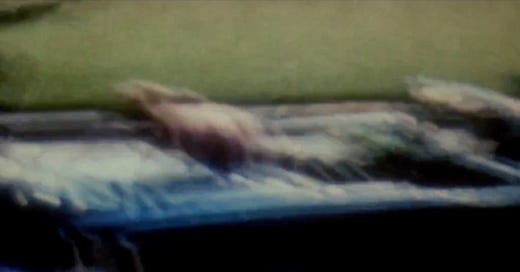



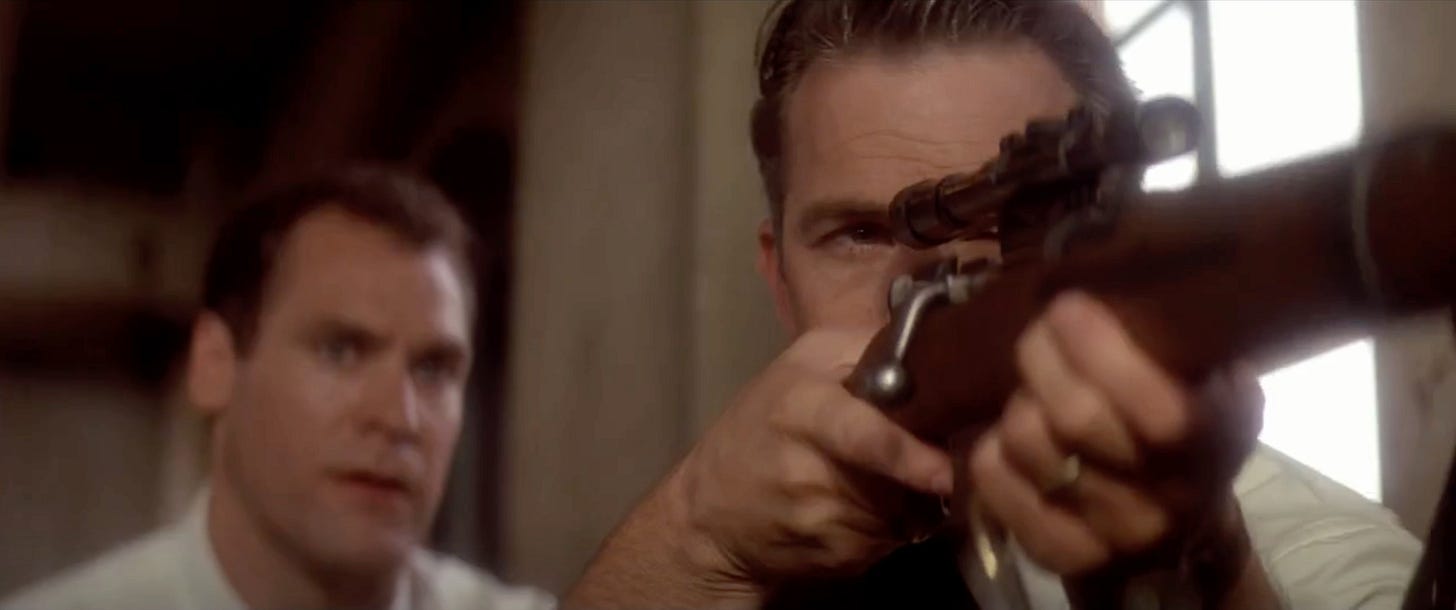
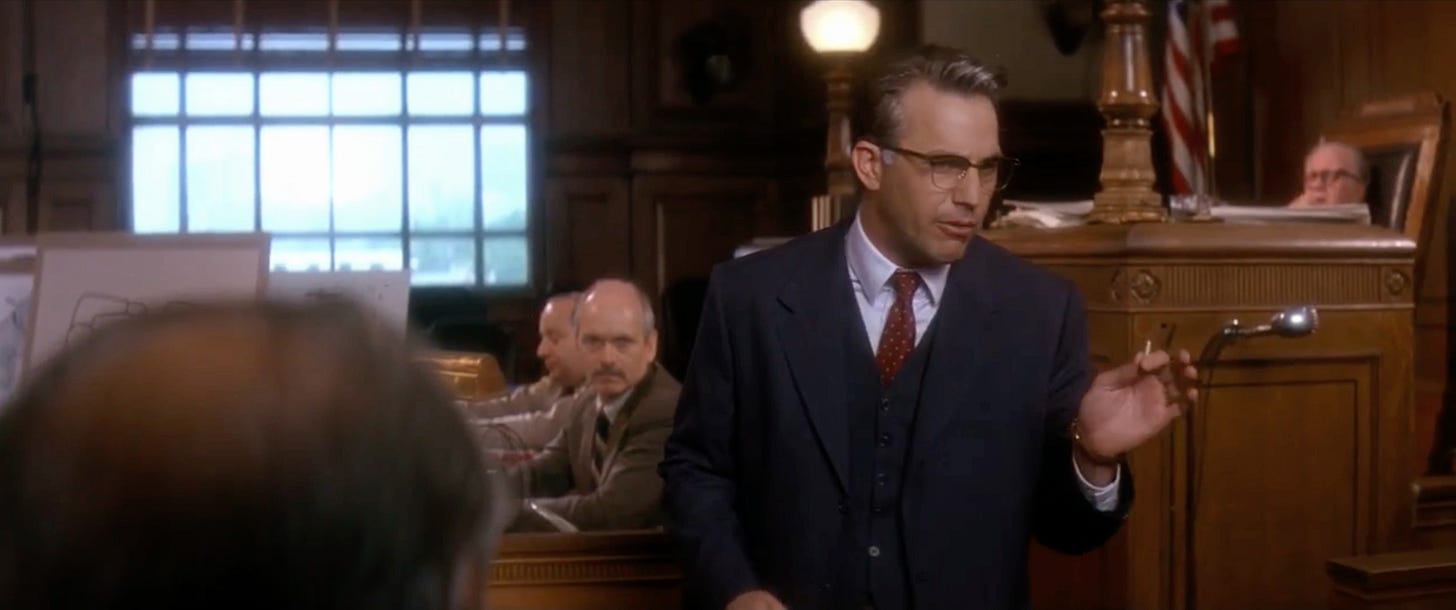
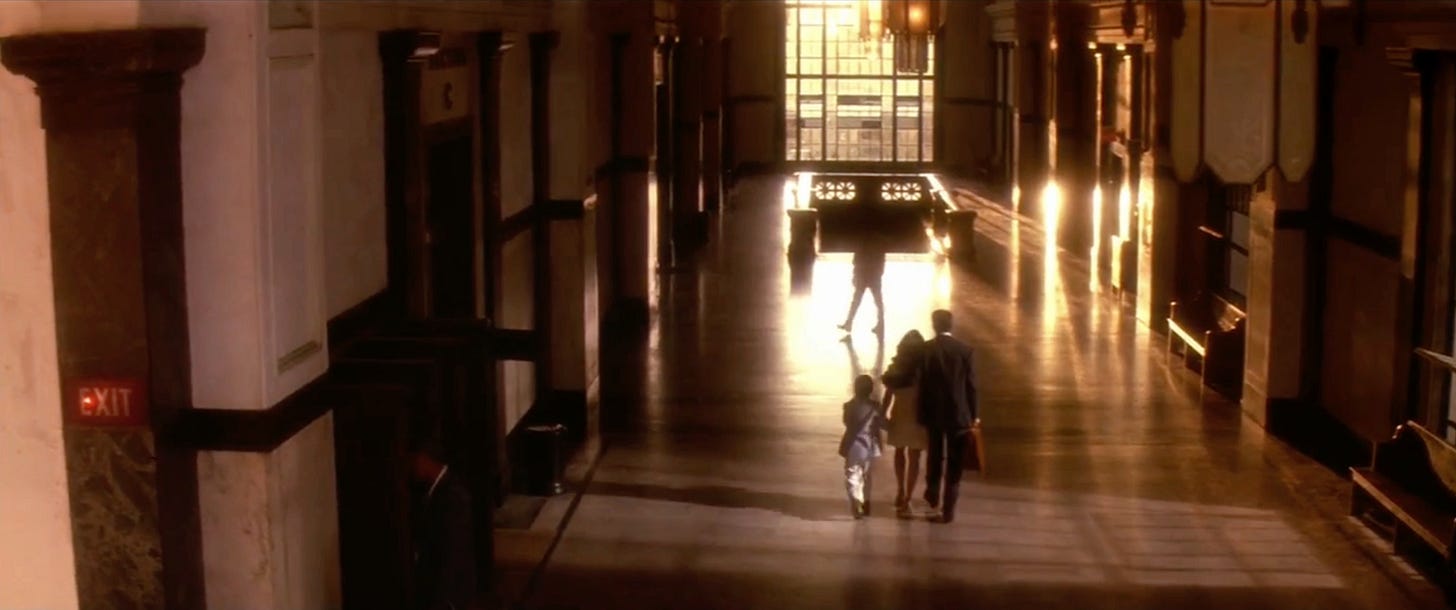

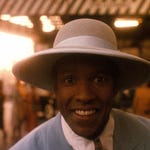

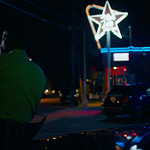




Share this post